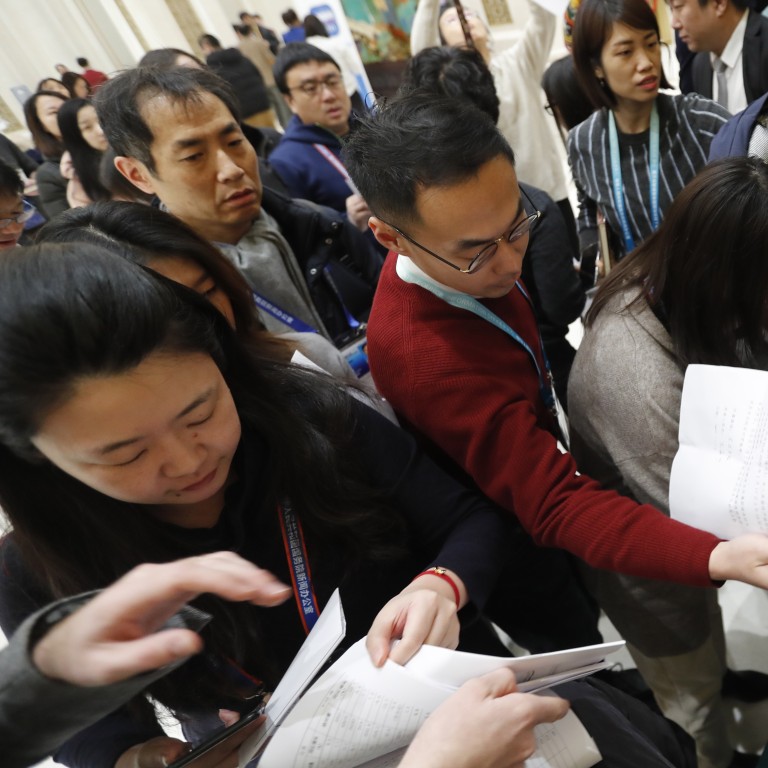
If GDP doesn’t add up, how is the world to measure well-being and progress?
- The world’s fixation with GDP has been questioned since the 1970s by Bhutan, which started measuring Gross National Happiness instead. Maryland is counting truly precious items like leisure. How can Apec contribute to the discussion?
Just over a decade ago, the government of Nicolas Sarkozy in France set up a Commission on the Measurement of Economic Performance and Social Progress. Its report, by a team led by Nobel laureate Joseph Stiglitz, was titled Mismeasuring Our Lives: Why GDP Doesn’t Add Up.
A year ago, revisiting the theme, Stiglitz reiterated: “If we want to put people first, we have to know what matters to them, what improves their well-being and how we can supply more of whatever that is. The Beyond GDP measurement agenda will continue to play a critical role in helping us achieve these crucial goals.”
The consensus on the shortcomings of GDP as “the overlord of measures” of economic progress strengthens by the year. So it is welcome that Apec, under Malaysia’s chairmanship this year, is looking “beyond GDP”. But it is perplexing at the same time, since the literature on the issue has simmered for decades. The Asia-Pacific Economic Cooperation forum’s largest challenge will be coming up with something new to say.
David Pilling in his 2018 book, The Growth Delusion, expresses sympathy with Kuznets, and the effort to “squeeze all human activity into a single number”. “However flawed, it is a powerful measure and a useful policy tool,” Pilling notes.
Hong Kong protests show a government failing to protect people’s well-being
Almost from the outset, the use of GDP as the ultimate measure of economic progress has been controversial, and the controversy has grown as GDP data have so often failed to match communities’ ideas about improvements in their own lives.
The momentum came from work by Richard Easterlin showing clearly that GDP growth failed to lift general levels of happiness. He questioned the value of a measure that so clearly failed to correlate with rising individual and communal happiness.
Blind and indiscriminate use of the GDP measure to suggest economic success – recall China’s mechanical ambition for the past three decades to ensure GDP grew at 8 per cent or higher – ignores the bad stuff that GDP includes, as well as the good and important things that it misses.
Critics have complained that crime contributes to GDP, as does prostitution, spending on prisons, defence spending, carelessly discarded waste, or burning petrol in interminable traffic jams.
They note that a wife doing unpaid housework does not contribute anything to GDP, while a salaried domestic helper doing the same work does. They note that eating at home does not contribute anything to GDP, but eating in a restaurant does.
However valuable leisure is to most of us, in GDP terms, it has no value. Black-market business and the informal economy go unmeasured, but pollution is measured twice – first for the initial pollution, and then for the work needed to clean up. According to Pilling, Kuznets himself “thought it was crazy to count pollution, commuting and military defence as pluses”.
The West doesn’t give China enough credit for its green leadership
GDP is generally poor at measuring the value of services, and hopeless at attaching a value to the quality – as opposed to the quantity – of the service. It is almost useless at placing a value on an educated workforce, high-quality public service institutions, or superbly efficient transport infrastructure.
As Lord Darlington in Oscar Wilde’s play Lady Windermere’s Fan might have said, GDP is like “a man who knows the price of everything and the value of nothing”.
So Malaysia’s Apec officials are joining a worthy cause in striving to go “beyond GDP”, and they have a wealth of literature to add to as they meet alongside the group’s Economic Committee in Kota Kinabalu in April.
Pilling in The Growth Delusion has some interesting advice: use the GDP number sceptically, and add to it rather than replace it.
As initial tweaks, he suggests we focus on GDP per capita rather than GDP; on median incomes to capture the average citizen’s life rather than mean incomes that can be swayed powerfully by inequalities in distribution; on inequality in its own right; on measures of well-being; and on carbon dioxide emissions to capture the negative impacts of pollution.
Perhaps the single most interesting starting point might be Maryland’s Genuine Progress Indicator. While this adds previously uncounted “goods” like leisure and unpaid housework, it also deducts “regrettables” like commuting time, pollution and spending on crime prevention and prisons.
At the end of the day, we are surely never going to discover a single number that captures all we need to know about how to improve our communities’ lives. If Apec’s “beyond GDP” initiative underscores this simple truth, it will perhaps be of value.
David Dodwell researches and writes about global, regional and Hong Kong challenges from a Hong Kong point of view

